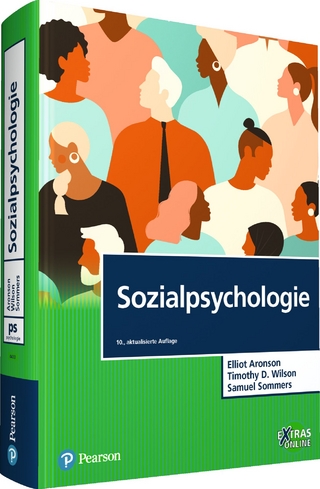
Psychology of Democracy
Cambridge University Press (Verlag)
978-1-108-47775-8 (ISBN)
Democracy was forged in the furnaces of oppression, whether combatting tyranny or affirming the rights of the individual. As democracy is under threat in many parts of the world, there has never been a more urgent need to understand political thoughts and behaviours. This lucid and accessible book brings together a global group of scholars from psychology, political science, communication, sociology, education and psychiatry. The book's structure, based on Abraham Lincoln's well-known phrase 'Of, by and for' the people, scrutinises the psychological factors experienced by politicians as representatives 'of' the electorate, the political institutions and systems devised 'by' those we elect, and the societies that influence the context 'for' us as citizens. From trust to risk, from political values to moral and religious priorities, from the personality and language of leaders to fake news and anti-democratic forces, this book provides vital new insights for researchers, politicians and citizens alike.
Ashley Weinberg is Senior Lecturer in Psychology at the University of Salford, UK. He is the founding Chair of the Political Psychology Section of the British Psychological Society (BPS) and a BPS winner of the Excellence in Occupational Psychology Policy Impact award. He is the editor of The Psychology of Politicians (Cambridge, 2012) and Brexit in the Workplace (2020).
1. Psychology of democracy Ashley Weinberg; of the people; 2. Personality, politics and strong democracy: a review of research and future directions Jo Silvester and Madeleine Wyatt; 3. From Big Ben to the breakfast table: basic values and political attitudes among politicians and the public James Weinberg; 4. Under the microscope: Prime Minister's questions in the UK Parliament Peter Bull and Maurice Waddle; 5. Cognitive complexity: sometimes a boon and sometimes a danger to democracy Peter Suedfeld; 6. In 'a league of their own'? Judgement and decision-making by politicians and non-politicians Barbara Vis and Sjoerd Stolwijk; 7. The mental well-being of politicians Ashley Weinberg; by the people; 8. Trust in political institutions and support for authoritarianism in Latin American students: does civic knowledge make a difference? Daniel Miranda, Juan-Carlos Castillo, Catalina Miranda and José Conejeros; 9. New technology, language and gesture in contemporary Indian political discourse Rukmini Bhaya Nair; 10. Fact or fiction: influences on voter decision-making in a disinformation environment David Redlawsk, Kyle Mattes and Karol Solis Menco; 11. Dissecting the psychology of a voter: a citizen-centric approach in studying electoral experience and behavior Sarah Harrison; 12. Building trust through a revolving door of leaders: the poisoned chalice Joakim Eidenfalk and Stuart Woodcock; 13. After the party is over Jane Roberts; for the people: 14. Democracy as a moral challenge Gian Vittorio Caprara; 15. 'Can I trust my future?' Youth civic engagement, civic identity and dystopias Ben Bowman, Thalia Magioglou and Helen Haste; 16. Religious identity politics and genuine support for democracy Gizem Arikan and Pazit Ben-Nun Bloom; 17. Psychology, democracy and the media: are citizens learning from the news? A self reflective learning perspective Sharon Coen and Karl Turgut Maloney Yorganci; 18. A social psychological approach to understanding China's democratisation Yida Zhai; 19. The psychology of radicalised conceptions of democracy – steps too far? Rod Dubrow-Marshall.
| Erscheinungsdatum | 23.02.2022 |
|---|---|
| Zusatzinfo | Worked examples or Exercises |
| Verlagsort | Cambridge |
| Sprache | englisch |
| Maße | 157 x 235 mm |
| Gewicht | 810 g |
| Themenwelt | Geisteswissenschaften ► Psychologie ► Sozialpsychologie |
| Sozialwissenschaften ► Politik / Verwaltung ► Politische Theorie | |
| ISBN-10 | 1-108-47775-5 / 1108477755 |
| ISBN-13 | 978-1-108-47775-8 / 9781108477758 |
| Zustand | Neuware |
| Informationen gemäß Produktsicherheitsverordnung (GPSR) | |
| Haben Sie eine Frage zum Produkt? |
aus dem Bereich


